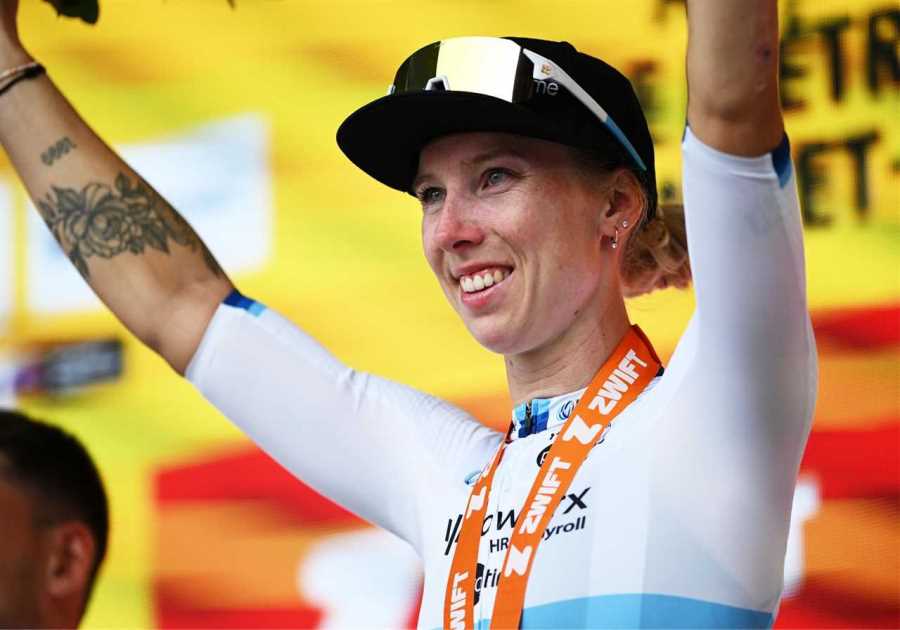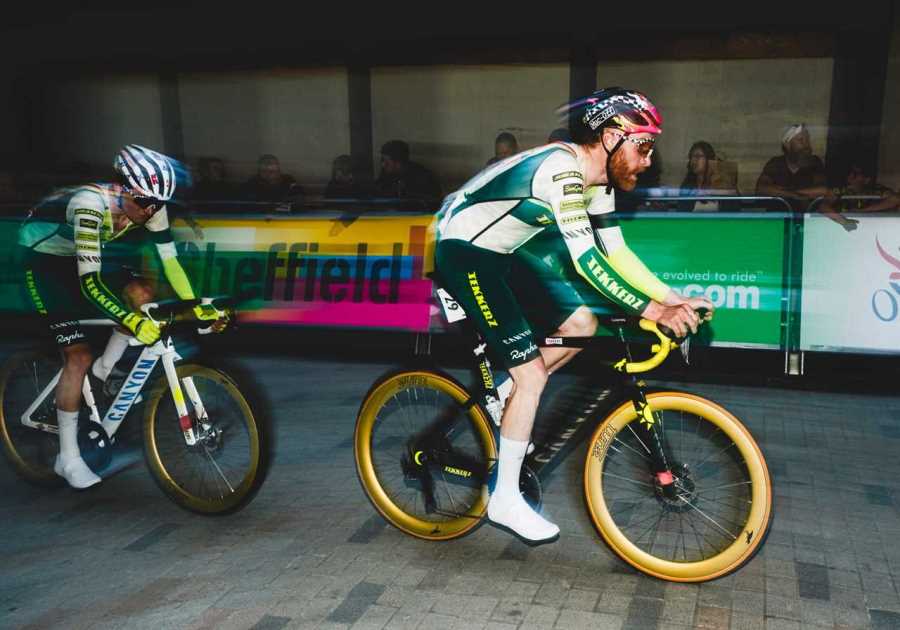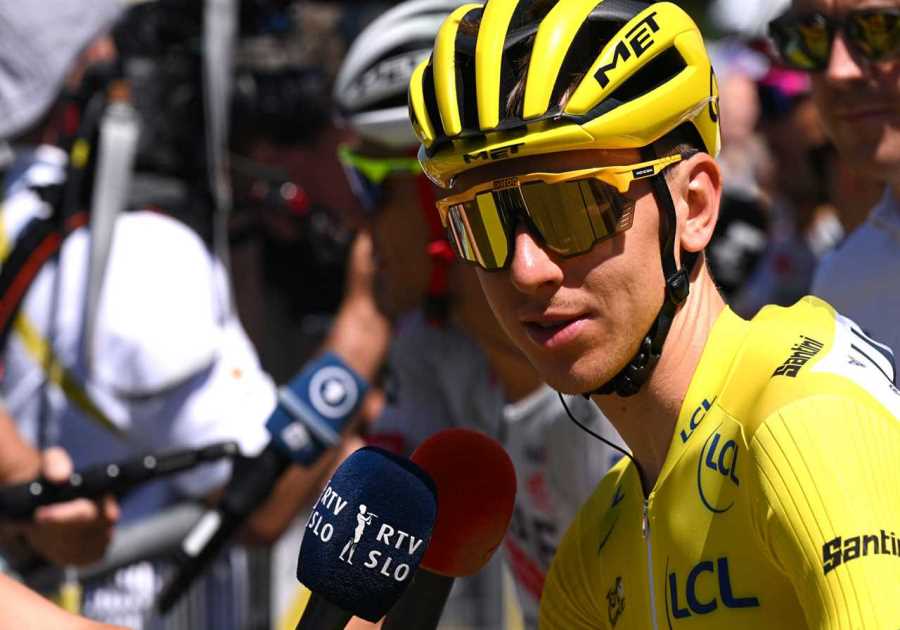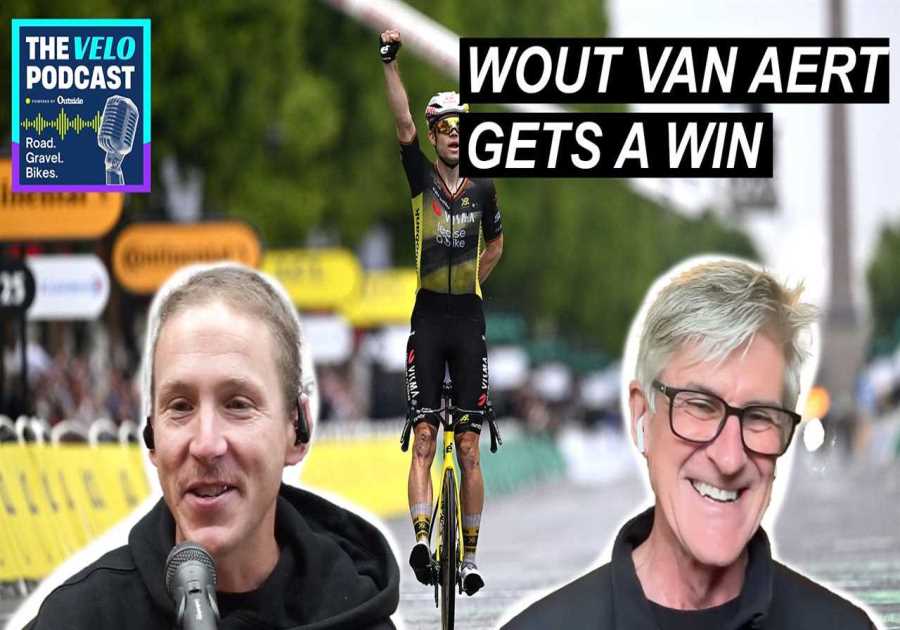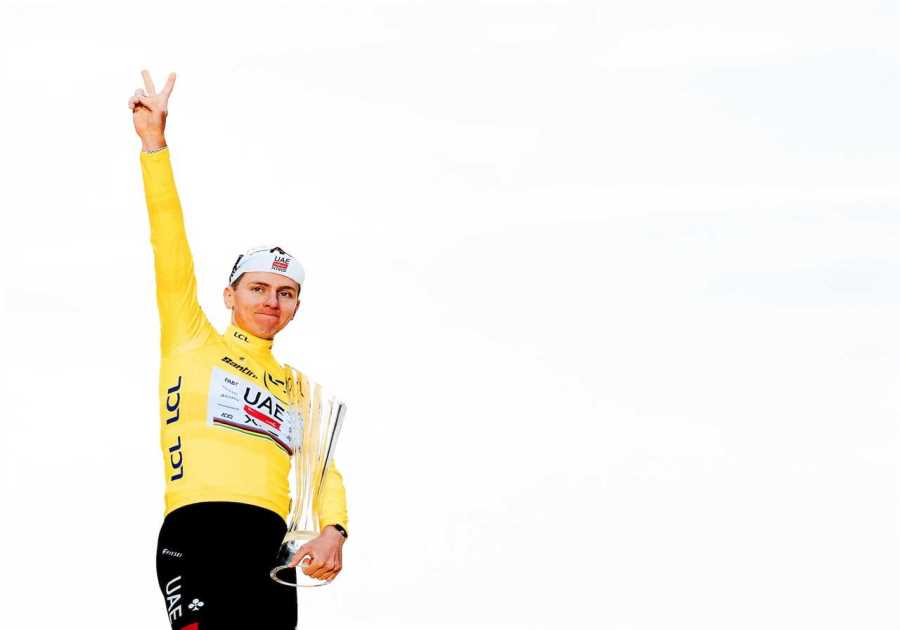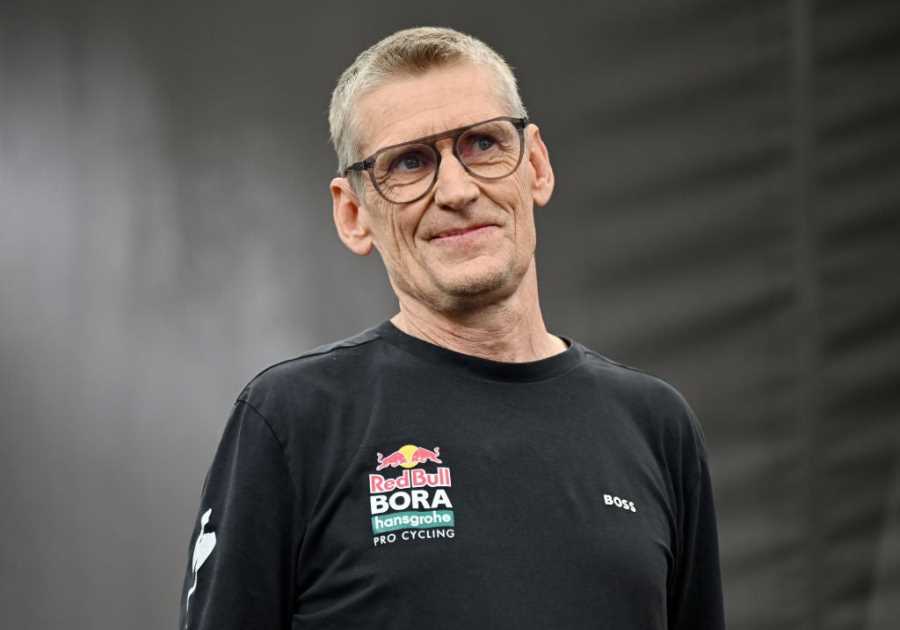HOSTED BY: https://fatmtnbike.com
TODAY'S RIDE
Q&A: Doug Ryder on Team Qhubeka's closure, its legacy, and its future
First formed in 2007, Team Qhubeka-NextHash has had a lengthy journey in professional cycling under multiple names – MTN-Qhubeka, Dimension Data, and NTT among them. From humble beginnings as an African Continental team, the squad worked its way up to the Pro Continental ranks in 2013. In 2016, the team cracked the WorldTour – and stayed there. Until now.
Team Qhubeka-NextHash’s tenure came to an unpleasant end at the end of 2021, after a fruitless search for a title sponsor investment that would have allowed the team to survive. Those woes were compounded by financial uncertainty and media scrutiny caused, in large part, by NextHash – the mysterious Slovenian cryptocurrency company that would end up being the team’s final title sponsor.
Last week, we published a major investigative feature looking into NextHash’s brief, brutal dalliance with cycling. It’s a bonkers rabbit hole: we’re talking North Korean military hackers, sex toys, and a string of failed entrepreneurial endeavours.
In reporting for that feature, I spoke to Doug Ryder, Team Qhubeka-NextHash’s principal. We talked NextHash at length, obviously, but we covered a lot more ground than that, too. What started as a series of uncomfortable questions about a sponsorship unfolded into a genuinely enlightening, insightful reflection on a well-liked cycling team’s place in the sport – past, present, and future.
The NextHash story is done, and hopefully that six-month slice out of a 15-year narrative won’t be the thing that comes to define the plucky underdog Team Qhubeka. In this excerpt from the Doug Ryder interview – edited for clarity and length – Ryder discusses his plans for the team to rise again from the Continental level, the impact that it had through its first iteration, and the legacy that it leaves.
View this post on Instagram
Iain Treloar: Moving forward after the sponsorship dramas of 2021, what does 2022 look like for you?
DR: I think we have a lot of hope around coming back in 2023 with a Pro Continental team [now known as ProTeam – ed.]
I’m incredibly sad that we didn’t find a partner to take on the team, a significant partner to come on board – to even keep the team going as a second-division team, not even a first-division team for 2022. We spoke to 200 companies, went through 10 sports marketing agencies, and we did good in 2021.
A lot of people focussed on COVID as well, and a lot of people are … I think the world became very territorial. American companies looked after American sports, etcetera. We have this unique African legacy, but we are an international team with an international story that ticks all of the UN Sustainable Development Goals. And we couldn’t get it going, which was quite sad. Even with all the endorsements that we got over the years, Laureus Sport for Good ambassadors … It was quite sad that we couldn’t find a partner to believe in this project and sign up for it for three to five years and keep it sustainable.
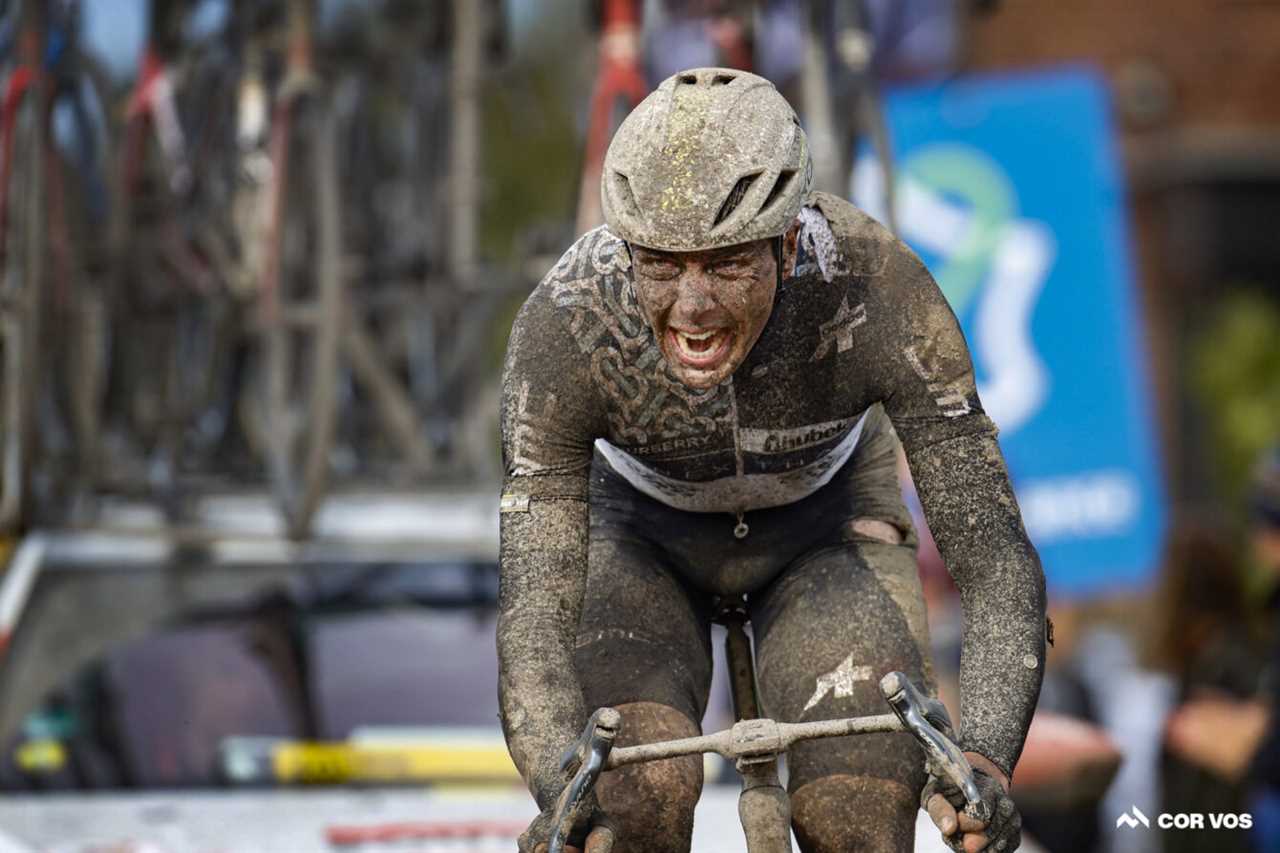
If you look at last year and you see Gino Mäder went fifth in the Vuelta – when nobody wanted to pick him up, we picked him up as a young rider. Ben O’Connor goes fourth in the Tour de France. He was with us for four years and six months later, after he leaves our team – I mean, it just shows we did all the hard work and we uncovered some amazing talent. That’s what our team is good at.
So 2022, we’ll lift the infrastructure in our Continental team. It is one of the best Continental teams in the world. [In 2019] we produced the world U23 champion in Samuele Battistella out of that Continental team – five or six out of the 12 riders on that Continental team have turned pro in first or second division. It just shows that it’s a sought-after team and it has relevance, and there’s a lot of good riders in it.
IT: What will the Continental Team Qhubeka bring to the table?
DR: We can announce the 2022 Continental team in the next week and we’ll continue with them. There’s a Rwandan, Eritrean, Ethiopian, South Africans and then, of course, Italians – because it has to be registered in Italy for visas, to give these Africans an opportunity. So that’s going to be a big focus for us, on getting to as many races [as possible].
We have a passion for the sport. I think building up to the 2025 World Championships in Rwanda, giving as many Africans an opportunity to be the best that they can be at that World Championships so that it’s well represented and puts on a great show, because we love Africa and we love what it can do in the sport, and it deserves to be in the sport. I think with those morals, those intentions, we want to focus on those and try and bring cycling together in a more purposeful way.
IT: You’ve talked about absorbing some of the infrastructure of the team, the service course and that kind of stuff into the Continental squad – are any of the riders from the WorldTour level allowed to come in?
DR: Yes. I mean, most of them can, but we will only retain Nicholas Dlamini, he will be a mentor. He’s come through the Continental team and got a ride into the WorldTour team, so he’s gone through all those steps. So we will retain him as that. But he’ll be the only one – it is around budget, there’s really nothing more to do with it than that.
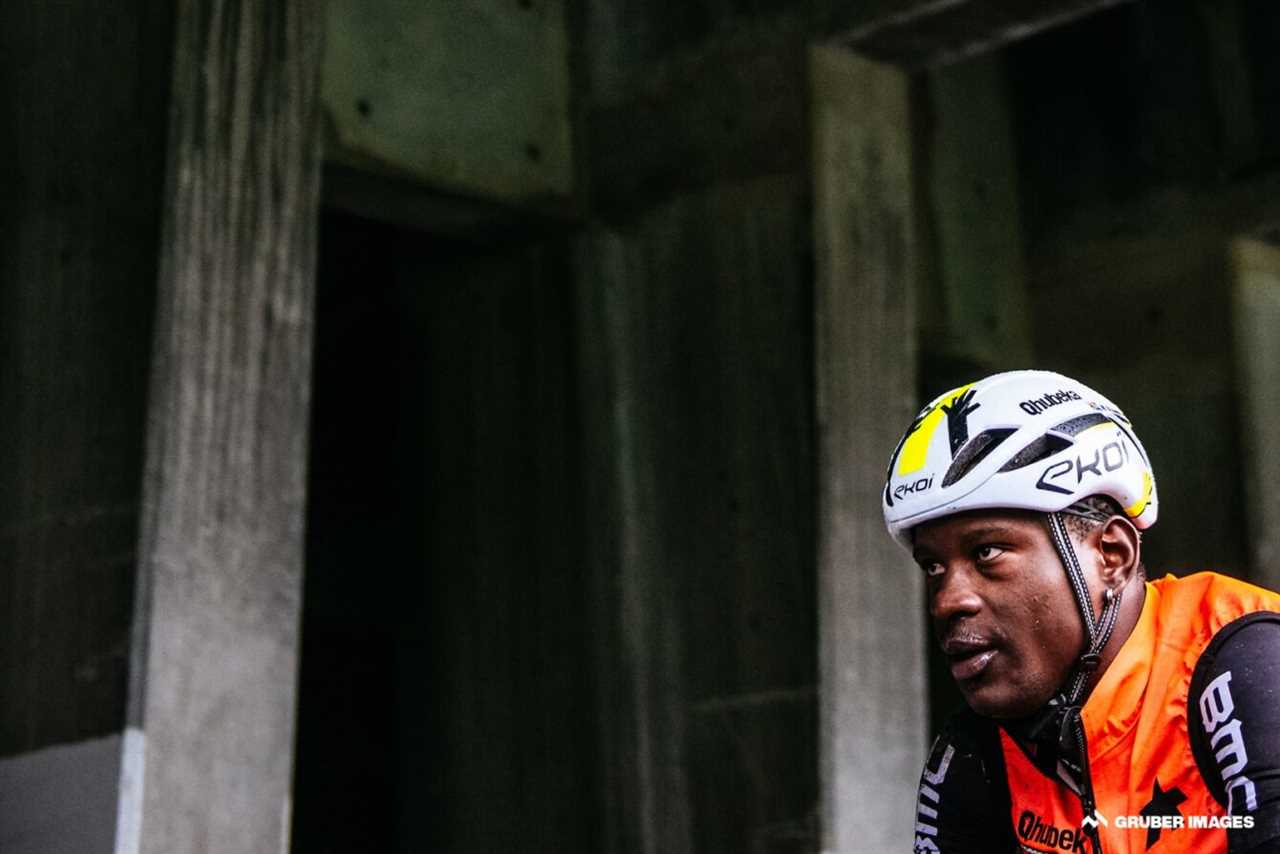
I was really sad at the end that we couldn’t register a second-division team and raise enough funds. Because of course, Domenico Pozzovivo, Simon Clarke, Sergio Henao, Dylan Sunderland, Antonio Puppio, Henok Mulubrhan, Nic Dlamini … there was a great, great group of riders that would have formed a nice foundation for this team going forwards, and they were the ones that actually gave up their opportunities and other teams and waited – knowing the risks, of course – because they just love what this team stands for.
So yes and no; we’ll keep Nic on board. It talks to our value system, of course – not that these other guys don’t. [Simon Clarke has since secured a WorldTour contract with Israel-Premier Tech; Henok Mulubrhan and Dylan Sunderland have signed with Continental teams. Pozzovivo and Henao’s future plans are unknown – ed.]
I was incredibly, incredibly sad that Nic Dlamini, who rode the Tour de France and went to the Tokyo Olympic Games, was not picked up by any team in the WorldTour. There isn’t another rider that went to the Olympic Games and the Tour de France last year that has no contract this year – I don’t think there’s another one in the world. And that, for me, has a big message, and it’s a sad message. Like, is he not relevant, does he not have a strong enough story, is he not good enough? All of those things? And I mean, that’s not cool. I’m saddened by it.
What happens if we didn’t exist? What would happen to all of these riders, like Tsgabu Grmay, Merhawi Kudus, Natnael Berhane, Amanuel Gebregziabher?
Biniam Ghirmay, who went second at the 2021 U23 World Championships, was 14 years old when Daniel Teklehaimanot wore the King of the Mountains in the Tour de France in 2015. His dream and his eyes were opened up to the sport because his countryman stood on the podium in a Tour de France, right? I mean, he never rode for us, which is fine, but that opened his eyes up to think, “this is an opportunity.”
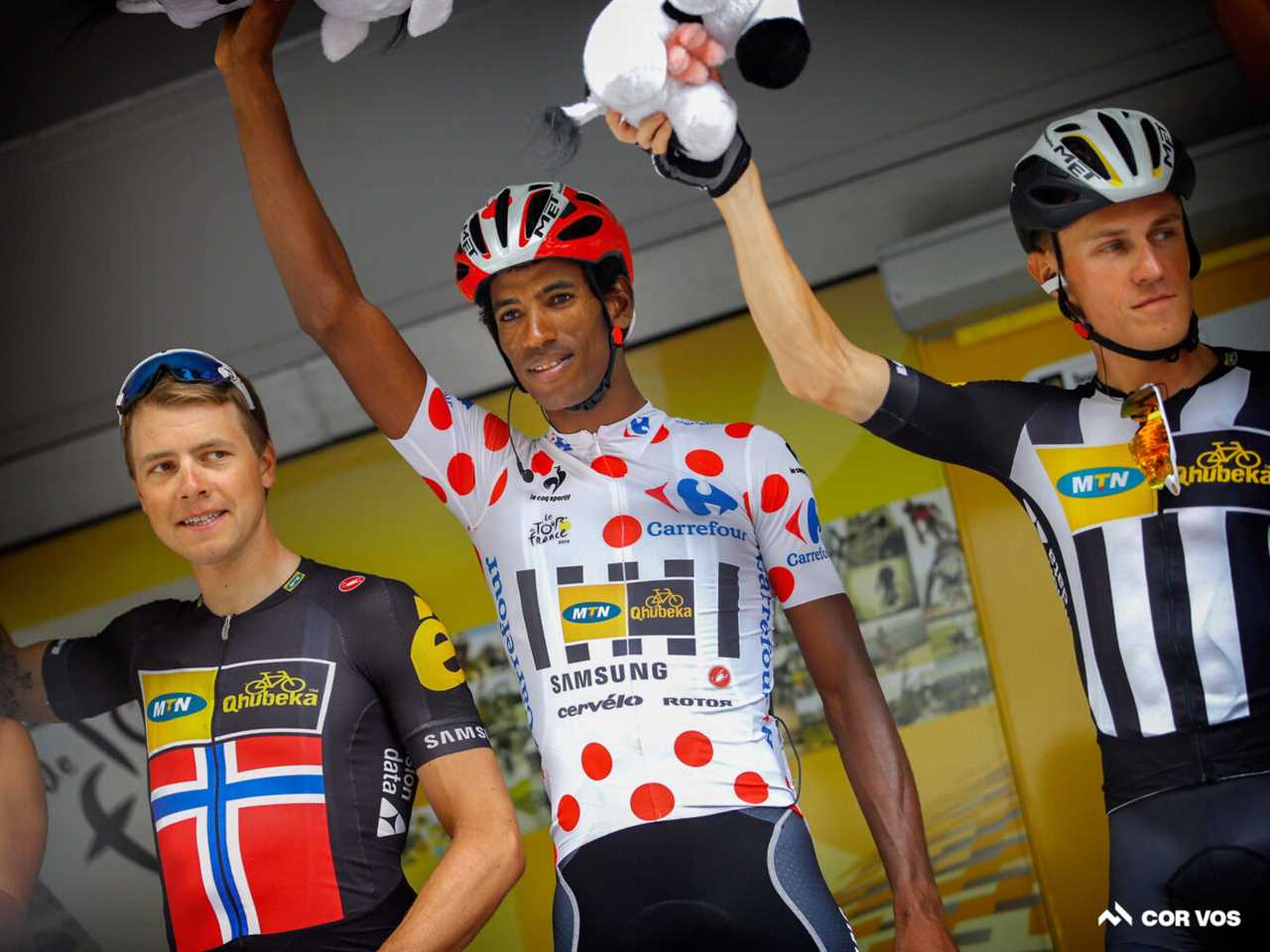
What happens if our team was never there, you know? And a guy like Nic Dlamini, who comes literally from nothing – his life has been so hard – and then no one picks him up. I mean, that’s pretty sad. I look at the sport and I’m thinking like, what are we doing?
Our relevance is so important. I wish I could take more [riders]. I mean, look at Dominico Pozzovivo. There’s a guy that was hit by a car, a broken rider a few years ago. Was left by his current team that he’d ridden for. The cycling world didn’t want to pick him up because he was damaged goods – and we did. And then one year later, he was fighting for a top 10 in the Giro.
I mean, that’s a human story, but people don’t care about human stories in our sport. They care about performance.
There’s more to sport than that. There’s more to life than that. Sport is about communities, connecting people, aspiration. Here in our service course, you know, we have a Mandela quote up there – “sport has the power to change the world”. We talk about ‘Ubuntu’ – that you can’t exist in isolation, you can only exist together. I think it shows through our actions. And for sure, I would have loved to have kept as many riders as I could have. But we just sadly couldn’t.

IT: So you mentioned that you’re planning to or hoping to come back to the ProTeam level in 2023 – is WorldTour out of the question?
DR: With the way the WorldTour licences are now – I mean, we had one, which the UCI then of course without funding and stuff revoked …
IT: So they take the licence back? You don’t retain the licence as an asset that you can use at a later date?
DR: No, correct. That’s the craziest thing about our sport – that you actually have no assets and you have nothing, actually, as a team owner. I mean, it’s quite bizarre. In other sports, the ranking drives revenue, drives interest, drives media coverage … so you get funding for that. Whereas in cycling, there is no ranking. There’s a world ranking – but how can you have three divisions in one ranking? And Continental divisions in one ranking. What the hell? I mean, it’s crazy.
So what that means ultimately is those teams that have got the points for 2019, 2020, ‘21, will go into … a ranking, I guess – and that’ll determine the WorldTour licences for ‘23, ‘24 and ‘25. So for us, of course, we would focus on raising the funding to become a Pro Continental team in 2023, with the intention of trying to get back into the WorldTour in 2026. But that’s kind of the steps.
Only the teams that are existing today, that have been in existence for the last two years, but have enough funding and points, will be able to go in the next cycle to be WorldTour teams.
IT: I guess you’ve been here before – you’ve worked up from Continental.
DR: Well, that’s the thing. What’s beautiful about our team and why the UCI loves us is that we didn’t buy our licence. We went from the third division, registered a second-division team, at the end of 2015 we were the number one second-division team in the world – a bit like Alpecin-Fenix is today – and then, you know, had the opportunity to get into the first division in 2016 and we’ve been [there] ever since.
So it’s a great story. We didn’t buy a licence. We didn’t buy a team with a licence. We didn’t buy ourselves into the WorldTour – we earned it. We became the best team in Africa so we became Continental champions, then took on the rest of the world as a second-division team.

We won Milan-San Remo in our first year – the first second division team ever to win a Monument. I mean, we did that from the beginning, and nobody talks about that. It was just incredible … Sagan was second and Fabian Cancellara was third in Milan-San Remo, and we came from the dust in our first years as a team, from where we came.
And now, sadly, we couldn’t continue – even when we had all the guarantees of a Tour de France start and everything. That’s a big line in the sand.
You know, some analysts like Nielsen Sports that analyse all sports – Formula One, football, etc – they were like, “wow, a team with your value system, that took the only Black rider to the Tour de France, that had an amazing story, that was on the World Economic Forum, on Richard Quest’s CNN Show and, with Thomas Bach at the IOC before the Olympic Games, he was thanking you for living the values and running a team that helps others, and yet you can’t find a partner into the future?” That’s pretty serious. That’s quite crazy.

IT: What have your personal highlights been over the team’s existence?
DR: My highlights are every time something incredible happens. When you see someone get a bike, of course. I mean, that’s – you’ve gotta see it. You see the community that we impact; the 25,000 people that feed themselves every day because of Qhubeka bracelets and the bicycle manufacturing plant. You just think, man, this is not a cycling team, this is so much bigger than that.
Steve Cummings winning at the Tour de France on Mandela Day in 2015 was a major highlight. Gerald Ciolek beating Cancellara and Sagan at San Remo – that was crazy, in the snow, in those conditions that were just completely daft and seeing Songezo Jim, our Black South African rider riding that day freezing his nuts off – I was like, what the hell is this, the most unbelievable, just beautiful experience?
Tour of Britain victories have been special with Steve [Cummings] and Edvald [Boasson-Hagen]. Daniel Teklehaimanot’s leader’s jersey in the KOM in the Tour de France that year was amazing. Going with four African riders to that race was just absolutely brilliant.
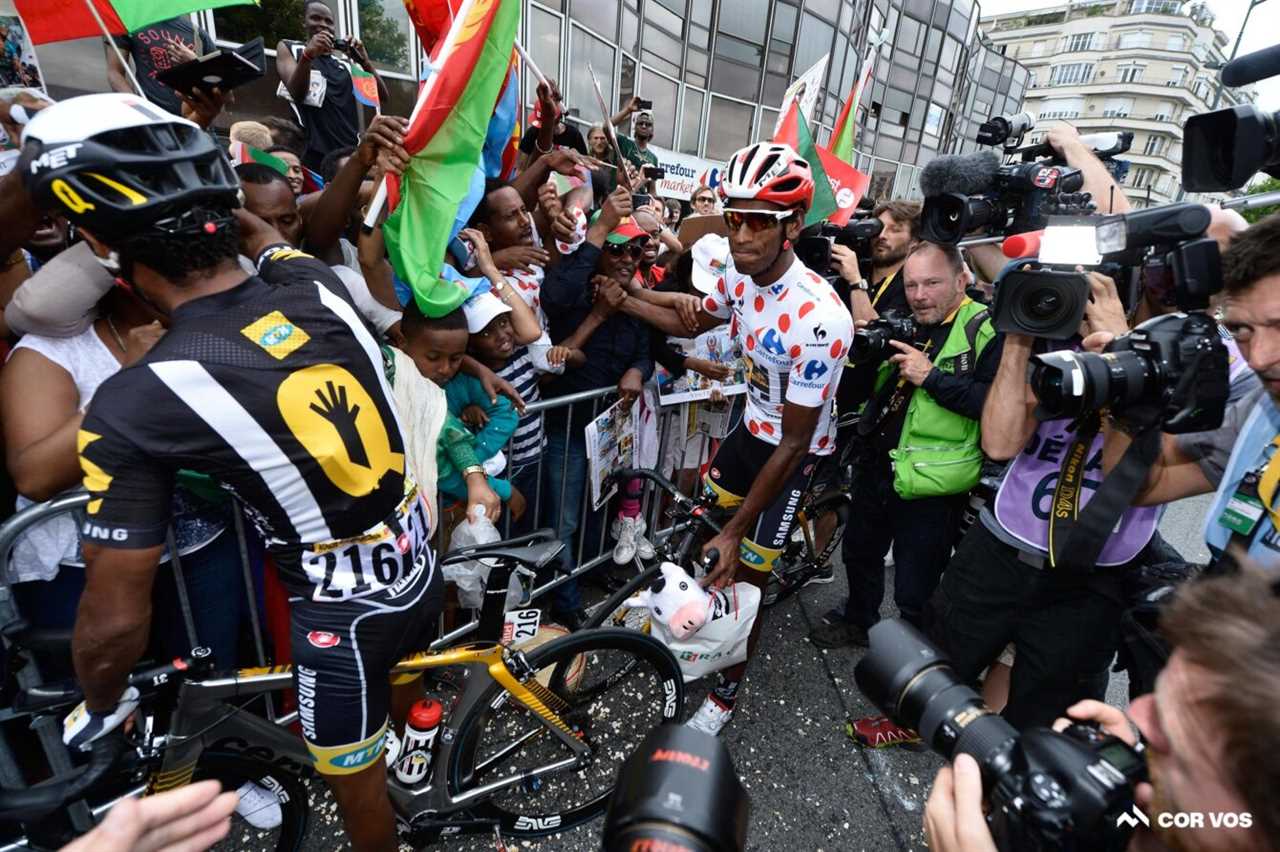
And then more recently, you know, the story of Nic Dlamini and his drive and his journey through the team. And also, I think all of the African riders that have got rides on other teams, and the way the world of cycling has looked at Africa with a keener interest. Giving riders opportunities that have come through our programme is really special for us. All of that makes a difference.
But our job is not done. I still want to see a Black African rider on the podium of a Grand Tour and we will continue to look for those talented individuals and try and give them that step in the right direction.
IT: Do you see the Continental team as a continuation of the whole narrative arc? Or is this an endpoint?
DR: Well, I see this as actually the beginning of something really special. I think it’s the beginning of Team Qhubeka. I see this as us moving forward now in a different way, and I really believe this is good for cycling … an opportunity to unite all of cycling and all of cycling fans together under a strong value system, a strong purpose that people can be proud of and want to be associated with.
There are so many bicycles being sold around the world [to improve] social distancing and health and wellness and mental fatigue and mental wellness. We have all of these major issues that are so topical, and cycling is a sport for everyone, everywhere at any time, and it’s free to watch. And so I think a team like ours, that cares about humanity and other people and not just winning races and looking at sponsor returns – those are important, no question, but I think there’s definitely a space for us and I think we are unique in that, because we’ve actually done it.
If we look at diversity and inclusion and racial equality and opportunity and hope – we’ve ticked all those boxes, and have for many years. So Qhubeka is not just a Continental team, it’s a movement for every cycling fan and person to want to be associated with and be a part of it.
IT: Is it going to be hard to keep that momentum going with less visibility?
DR: I think as the first race comes around, you become forgotten if you’re not there. And that’s my concern. Absolutely. And I think, you know, our Continental team is important in terms of still getting visibility and the stories around it.
I mean, Negasi [Haylu Abreha], our Ethiopian rider that lives in Tigray hasn’t been home in two years because the country’s in civil war. I mean, screw COVID. Who cares about COVID when you don’t know if your mother, father, family are alive or dead and you can’t go home in two years? And we’ve supported him – we never sent him home because he would never have been able to come back or potentially even survive going home.
I mean, that’s an incredible story. This is a guy that’s on our Continental team that has the most unbelievable trauma in his life. And he’s riding a bike to escape. That’s what we do. That’s cool.

We created a platform for our riders and our staff to become better human beings, so that they can think that our success is somebody else’s. I think that’s beautiful and so needed in the world that we live in today. That’s why we have to continue and keep our momentum up.
We’ve walked a long journey. Last year was incredibly sad, but we fought hard to keep the team going. And we’re still fighting to finish it from last year and do the right thing, which is quite tough.
Team Qhubeka – it’s such a great name; it means to move forward, to carry on, to progress. Having a brand like Team Qhubeka, which is not a title sponsor in the true sense of cycling title sponsorships – it’s a bit like football where you’ve got a brand, you’ve got an ethos, you’ve got a team that can be supported by generations.
Maybe we’re ahead of our time in cycling for that and people don’t understand it. But we are bigger than just a title partner. Team Qhubeka has a story, a purpose, a relevance.
Read MoreBy: Iain Treloar
Title: Q&A: Doug Ryder on Team Qhubeka’s closure, its legacy, and its future
Sourced From: cyclingtips.com/2022/01/qa-doug-ryder-on-team-qhubekas-closure-its-legacy-and-its-future/
Published Date: Tue, 25 Jan 2022 01:36:10 +0000
___________________

